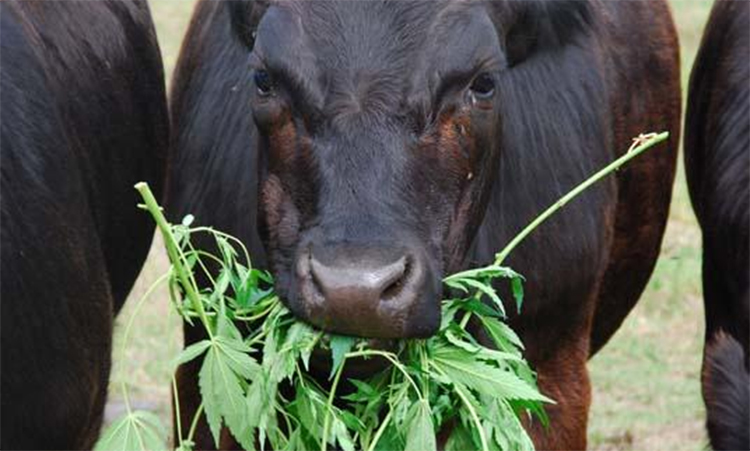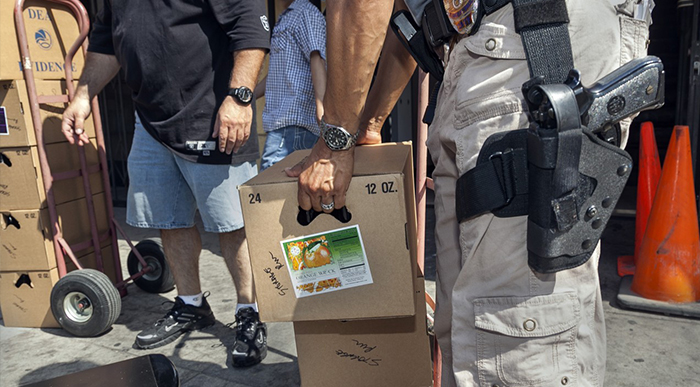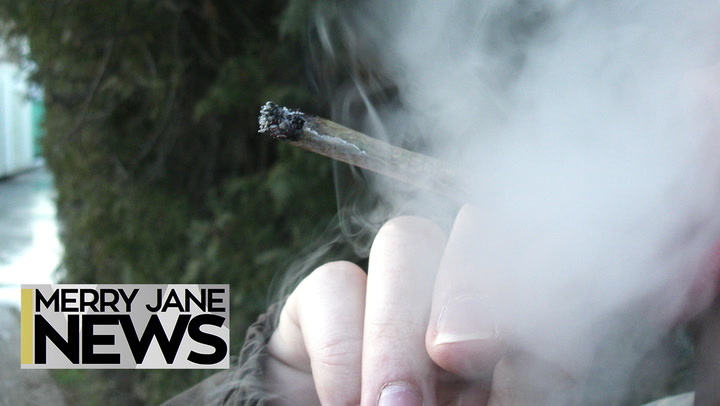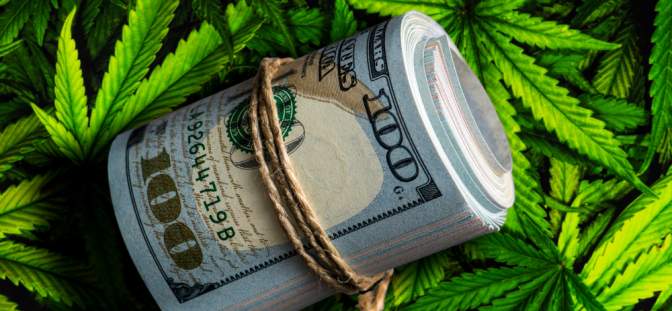Image via
Feeding cattle high-CBD industrial hemp can help them de-stress and potentially boost their health, according to a new study published in Scientific Reports.
Hundreds of clinical research studies have firmly established the stress-reducing effects of CBD in humans, and some veterinarians have even studied what effect cannabinoids might have on pets or other animals. But could CBD also help reduce stress in cattle? A team of researchers from Kansas State University conducted a new research study to find out.
The researchers divided a group of 16 Holstein steers into two equal groups. Over the course of two weeks, one group received their regular feed, while the other munched on a mix of feed and hemp. Researchers measured out enough cannabis to give each steer a daily dose of 5.5mg of cannabidiolic acid (CBDA) per kilogram of body weight. The KSU team monitored the progress of the study by observing the animals’ behavior and taking regular blood samples from each subject.
The blood samples were analyzed for levels of cortisol and prostaglandins, common biomarkers that indicate levels of stress. As predicted, the CBD-munching cattle showed lower levels of these biomarkers, suggesting that they were less stressed than their counterparts. The hemp-eating steer also spent more time lying down than the control group, further confirming the hypothesis.
Just like humans, cattle that are stressed are more likely to get sick. Ranchers have found that their livestock experience the most stress when they are weaned from their mothers or packed into close quarters during transport. Stressed-out cattle are far more likely to develop respiratory infections or other ailments, but this new study suggests that ranchers could help mitigate this stress with a simple diet change.
“We might have a more natural way to reduce stress in cattle,” said study author Mike Kleinhenz, assistant professor of beef production medicine at the K-State College of Veterinary Medicine, to KMUW. “And we’re just starting to scratch the surface on some of the benefits.”
Kleinhenz and his team also discovered that the cannabinoids eaten by the steer did not accumulate in the animals’ systems, indicating that they were fully absorbed. “It was kind of an exploratory study that yielded some really interesting results,” he explained. “You usually don’t go fishing and find stuff like that.”
K-State researchers have been investigating hemp-based cattle feed since 2020, partially funded by a $200,000 grant from the US Department of Agriculture. Cattle are able to fully digest hemp, including stems, stalks, and other waste material left behind after CBD and other cannabinoids are extracted from fresh cannabis plants. The present study suggests that using hemp leftovers as cattle feed could help reduce this plant waste while also helping livestock remain healthier and more relaxed.
Despite these benefits, the US Food and Drug Administration still prohibits farmers from feeding hemp to any livestock meant for human consumption. The feds are particularly concerned that trace elements of cannabinoids could remain present in meat or milk from cattle that have eaten hemp. The present study suggests that these concerns may be unwarranted, but the KSU team intends to conduct additional research to further investigate the issue.
“We want to understand the whole timeline, from when an animal last consumes [hemp compounds] to when it can safely enter the food chain and not have those compounds in the system,” said Kleinhenz to KMUW.











